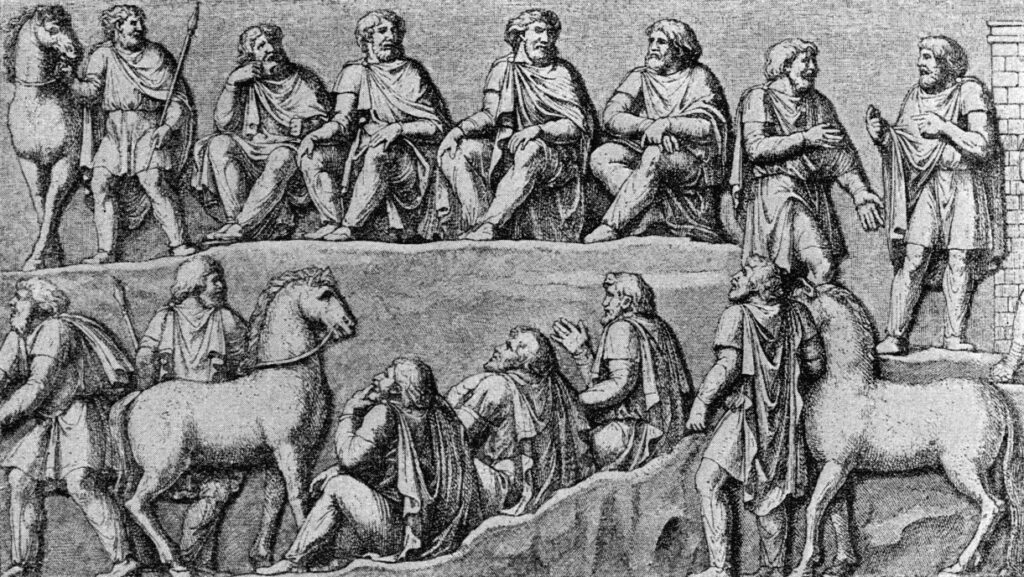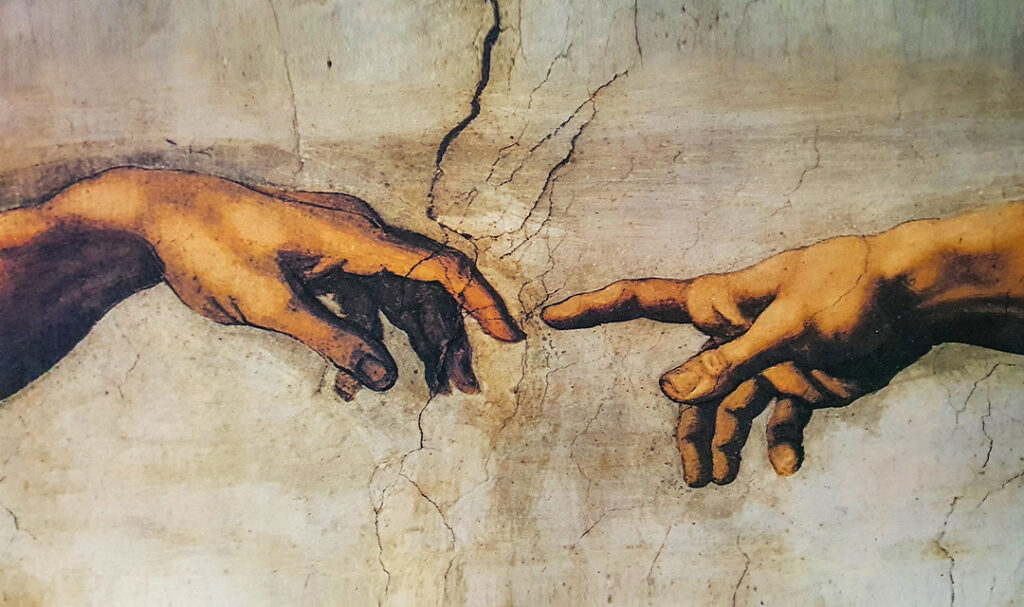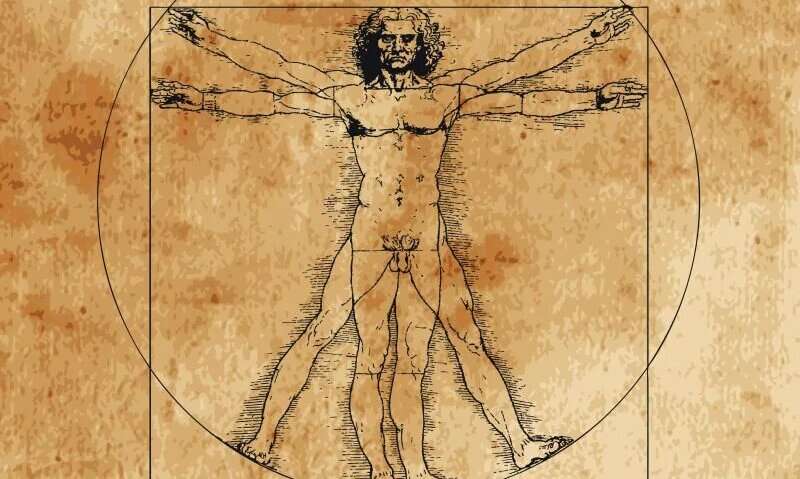Last week, having come to the realization that I don’t know what I stand for, I set about with the simple task of finding out what “the Good” looks like.
Disclaimer: I will be attempting this without any academic titles or authoritative claims on my part.
Like me, I’m sure you have heard it said many times that good was most easily distinguishable by first identifying evil, and then simply asserting that the opposite to evil is good – indeed that was how I was initially tempted to begin this inquiry.
However, in keeping with the general thrust of this endeavor – that of beginning from “the Good” – I would like to work my way through this in the opposite direction. It might be, then, that in identifying what is good, we will inevitably come to understand what evil looks like.
Something about that seems unsettling, though I am not quite sure why.
I can hear my inner-self shaking it’s head at me saying ‘Silly human – You know very well that “the Good” is subjective.’, but do I actually believe that?
What does the word mean?
I found this to be more interesting than I initially thought it would be.
If I stopped to think about what I thought of as being good I ended up in a strange mental loop of sorts, where I tend to think something is good because I like it, and I like it because I think it’s good.
I think it is good to be healthy, because I like being healthy.
However, is there anything I would be seen to like which I do not also think are good?
Some might say that there are things which we don’t like but which nevertheless are good – but then perhaps we “secretly” like them because we think they are good – but then why are they good? Not because we like them, because we already established that we like them because they are good … oh dear, this is making me dizzy.
Let’s try another approach.
Do I like everything that is necessary for me to be healthy? No. There are times when I just don’t like exercising, or when I want that extra portion of fries, but deny myself the indulgence. So then why am I doing things that I don’t like?
Because I think that the net benefit outweighs the immediate dislike.
But in order for me to evaluate a benefit I must have already decided that there is something to be attained, some goal to be reached.
Let’s cut to the chase – I want to live. The best chance I have to live is to be healthy rather than unhealthy.
Ah, survival, my old friend – the most ancient of companions.
Functionality is good
We say that being healthy is good because it is vitally important to achieving the objective of living. In that case, what is good has utility, and has utility because it is functional.
Conversely to how the word good is used today, it’s etymology points to the original meaning being rooted in objective functionality rather than subjective whim. Words like fitting, usable and suitable are associated with the word’s Proto-Germanic roots, which originate from the Proto-Indo-European word meaning such things as to unite, to belong and be associated.

As an interesting side-note – the Germanic word was not the only word of similarity floating around Europe. The other was the French word bon and it’s English variations – a word originating from the Latin bonus. Interestingly still, the origins of this word, also from it’s Proto-Indo-European roots, apparently means such things as to show favor and to revere – this variant of “good” seems to have had less to do with the idea of functionality.
As it turns out, the Germanic variant – the one based on functionality – succeeded in the English language, where the French/Latin variant ultimately failed.
To what end?
I quite like the idea of good being something approximating “that which is functional”. It just seems a bit more tangible and substantive. But is it?
Before, I said that being healthy was good because it serves the purpose of realizing the goal of life itself. In this way, being healthy is functional, and therefore good.
Functionality itself is determined by something either benefiting an aim or not.
We have become so accustomed to using the word good for everything, instead of using more appropriate adjectives.
“The ice cream we had was good.” only tells me that the ice cream met, or perhaps exceeded, your expectations – aka. benefited your aims. But it doesn’t tell me what your aims were/are. Maybe you thought the ice cream was good because of the texture, the flavor, the color, the smell, how slowly it melted, or maybe it was good merely because it was served in a gorgeous crystal glass and garnished with exciting and sparkling things.
“The ice cream was delicious and had a smooth, creamy texture.” also tells me that you think the ice cream was good, but immediately, and perhaps most importantly, informs me as to why you think so.
So it seems that, ultimately, we refer to things, and people, as being good when/if we perceive them to benefit our aims. To be good is to be functional. And for something to be functional, an aim has to already have been decided on.
What are our aims?
Once we know what our aims are, we be able to determine what is beneficial to our aims, and therefore what is approximately “the Good”.
Let us start from the most basic aim and see how far we go before the aims become less opaque.
Health (Life)
I am pretty sure this would be considered a universal human aim.
However, in order to fulfill this most rudimentary of goals, we already find ourselves acknowledging the conditions for it to be realized:
- food
- shelter
- safety/protection
And since what is functional (beneficial to our aims) is also good, this means that these three things must be good.

It also must mean that the pursuit of these three things is good – the pursuit of food, shelter, and safety, not as an end in themselves, however, but as a means to health, and therefore life – our ultimate aim.
Family
In order for human life, our foremost aim, to be realized, procreation is necessary.
The conditions for successful procreation could be considered to be:
- pair-bonding
- parenthood
- education
While the first two are probably well understood, you might be wondering why the third one is there.
To my mind, the success of procreation is ultimately measured by the offspring successfully reaching sexual maturity so that they, like their parents, can procreate. Without an education, the probability of the offspring falling prey to starvation, disease, injury or predator, increases to unacceptable levels.
This is what I mean by “education” being a condition to successful procreation.

So we have identified three more things which are good, because they are beneficial, if not vitally important, to the ultimate aim – Human life.
Civilization
This is perhaps where things get a little more challenging. After all, how does Civilization benefit our ultimate aim?
Isn’t human life already secured by pair-bonding, parenthood and education?
Perhaps.
But, then again, there is something quite unique about humans – Creativity.
Immediately things like oil paintings on canvas, designing and building cathedrals and composing music spring to mind. However, creativity is also critically important for survival itself – after all, what is adaptation if not an expression of our creativity. And while each individual human being possesses this creative ability, it becomes a proverbial superpower when we collaborate with one another.
But does this qualify Civilization as being an aim?
Without going to far down this rabbit hole, which I suspect would be as interesting as it is time-consuming, here is what I think.
It seems to me that creativity is instinctive to humans – it’s part of our being human, to the extent that we cannot merely decide to not be creative. Creativity does not seem to be optional to the human condition.
But creativity can be used to various ends. The invention of the washing machine was a manifestation of human creativity just as the invention of the atomic bomb was – one has the power to clean our dirty laundry, and thus bring things into order, while the other has the power to destroy the world as we know it, and thus bring things into total disorder.
Human cooperation – the bedrock of civilization
If the ultimate aim is life, and to meet this aim we must procreate, and the most sustainable and successful method of procreation is to create families, then wouldn’t the next question be something like “What best facilitates the creation of families?”!?
It is no secret that human life is difficult to sustain when a male and female adult are isolated from other male and female adults, so that they alone have to meet the needs and demands of food, shelter, and safety.
However, humans cooperating with one another, combining resources, both of mind and material, permits those same humans to have greater success at procreation, because they can keep each other fed, sheltered and protected to a degree simply not possible were they to attempt to do so in isolation of one another.

This is, in it’s most basic form, civilization – the consequence of human beings cooperating with one another. The forming of inter-family communities, communities forming villages, towns, cities and nation States.
To me, civilization is an aim, to the extent that it facilitates, if not super-charges, the realization of the ultimate aim – Human Life.
The fundamental aspects of human civilization might be (in no particular order):
- Community (collaboration between families, relatives, friends and neighbors)
- Society (collaboration between communities)
- Arts
- Ethics
- Culture
And each of these aspects are good, insofar as they benefit the ultimate aim.
At least, that might be a correct, dare I say good (fitting, suitable), place to start.
In Conclusion
I have lightly investigated the matter of how “the Good” can be identified.
I believe this investigation was performed on a more objective, tangible, and down-to-earth manner, allowing myself to assume that the ultimate aim is human life itself.
We can now create a list of contexts, or subjects, which can be attributed to “the Good”, insofar as they benefit the ultimate aim:
- Health
- of Body
- of Mind
- Family
- Pair-bonding
- Parenthood
- Education
- Civilization
- Community
- Society
- Arts
- Ethics
- Culture
It seems as good a starting place as any.




3 thoughts on “Defining the Good”